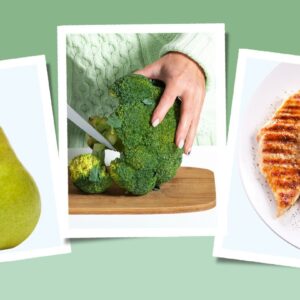Popcorn can be a healthy snack if made the right way. The plain, air-popped kind is low in calories and high in fiber. It also has lots of vitamins and minerals. But, how popcorn is cooked and what toppings are used can change its healthiness. Knowing the details of popcorn’s health benefits helps us add it to our diets wisely.
Key Takeaways
- Popcorn is a whole grain food that is high in fiber and nutrients like vitamins, minerals, and polyphenol antioxidants.
- Air-popped popcorn is the healthiest preparation method, as it avoids added fats and oils that can increase calorie and fat content.
- Portion control is important, as even healthy popcorn can be high in carbs and calories when consumed in large amounts.
- Avoid pre-packaged microwave popcorn and toppings high in salt, sugar, or unhealthy fats to maintain popcorn’s nutritional benefits.
- Healthy popcorn toppings include spices, herbs, and nutritional yeast for added flavor and nutrition.
What is Popcorn?
Popcorn is a special type of corn that “pops” when heated. Inside each kernel, there’s a small amount of water. When heated, this water expands and makes the kernel explode.
This explosion turns the kernel into a light, airy snack. It’s a favorite in American culture.
A Special Type of Corn that “Pops” When Exposed to Heat
Popcorn is a unique corn variety. It has a thinner outer hull and more moisture inside. When heated, the water turns to steam.
This steam builds up pressure until the hull bursts. The kernel then “pops” into a fluffy, white snack.
The Oldest Piece of Popcorn Discovered in New Mexico
Popcorn’s history is rich, with evidence of its use for thousands of years. The oldest popcorn found was in New Mexico, over 5,000 years old.
This shows popcorn has been a part of diets for centuries. Its popularity has grown over time.
Today, popcorn is a top snack in the U.S. Americans eat about 1.2 billion pounds of it yearly. Its versatility, convenience, and health benefits make it a favorite at home and in theaters.
Popcorn Nutrition Facts
Popcorn is a great whole grain food full of vitamins, minerals, and fiber. It’s a tasty snack that helps you get the nutrients you need. Enjoying popcorn can make your diet healthier and more satisfying.
A Whole Grain Food High in Vitamins, Minerals, and Fiber
Popcorn is a whole grain, which means it’s packed with nutrients. It has vitamins B1, B3, and B6, iron, magnesium, phosphorus, potassium, zinc, copper, and manganese. These are all important for your health.
It’s also very high in fiber. A single serving gives you over 4 grams. Fiber is key for a healthy gut, controlling blood sugar, and feeling full.
| Nutrient | Amount per 30g Serving |
|---|---|
| Calories | 116 kcal |
| Protein | 3.9g |
| Fat | 1.4g |
| Carbohydrates | 19.9g |
| Fiber | 4.3g |
Popcorn is a top choice for boosting your whole grain benefits, vitamin and mineral content. It’s a key part of a healthy diet.

High in Polyphenol Antioxidants
Popcorn is packed with polyphenol antioxidants, which are good for your health. It has more of these than many fruits and veggies because it’s dry.
The hulls of popcorn are especially full of these antioxidants and fiber. Eating one serving can give you up to 300 mg of polyphenols. This is way more than what you get from sweet corn or most fruits.
Popcorn can even give you up to 13% of the daily polyphenol intake in the U.S.. Fruits and veggies only give about 255 mg and 218 mg per day, respectively.
These antioxidants are great for your health. They help with blood flow, digestion, and can lower the risk of diseases like high blood pressure, diabetes, and some cancers.
Compared to other whole grain snacks, popcorn has the most antioxidants. Researchers say it and other whole grains have a lot of these antioxidants, even more than many fruits and veggies.
So, next time you want a healthy snack, try air-popped popcorn. It’s a tasty way to get lots of antioxidants and boost your health.
Extremely High in Fiber
Popcorn is packed with fiber, offering over 4 grams in a single serving. It’s even more impressive when you consider popcorn provides about 14.5 grams of fiber per 100 grams. This makes it a top choice for getting enough dietary fiber, which is key for good health.
Linked to Weight Loss and Reduced Disease Risk
The fiber in popcorn is great for your health. It helps with digestion and keeps you feeling full. This can help with weight management. Plus, eating more fiber may lower your risk of heart disease, diabetes, and some cancers.
For comparison, pears have 3.1 grams of fiber per 100 grams, avocados have 6.7 grams, and lentils have 10.7 grams. But popcorn’s fiber content is impressive, making it a smart snack choice for those looking to boost their fiber intake and improve their overall health.
- Popcorn is very high in fiber, with 14.5 grams per 100 grams.
- A single serving of popcorn contains over 4 grams of fiber.
- Fiber has been linked to weight loss and reduced risk of chronic diseases.
- Most Americans need a minimum of 25 grams of fiber per day.

“Popcorn is one of the best sources of dietary fiber around, making it a smart snack choice for those looking to boost their fiber intake and improve their overall health.”
Is Popcorn Good for You? What Nutrition Experts Say
Popcorn can be a healthy snack if made right. Experts say air-popped popcorn is good because it’s full of fiber and low in calories.
But not all popcorn is healthy. Movie theater popcorn and microwave bags are full of salt, butter, and artificial flavors. These add a lot of calories and not much nutrition.
To make popcorn healthy, eat it in moderation and make it right. Air-popped popcorn without toppings is a great, fiber-rich snack. But eating too much movie or microwave popcorn can lead to too much fat, sodium, and calories.
“Popcorn can be a healthy snack option, but it’s important to be mindful of how it’s prepared,” says Jane Smith, a registered dietitian. “Avoid pre-packaged and heavily-processed varieties, and instead focus on making air-popped popcorn at home with minimal added toppings.”
By controlling how much you eat and choosing air-popped popcorn with healthy toppings, it can be a nutritious snack. Just avoid the high-calorie, processed kinds found in theaters and stores.
Popcorn Nutrition Facts
Popcorn is a whole grain, packed with nutrients. A three-cup serving of air-popped popcorn has:
- 164.4 calories
- 9.24g of fat
- 3.3g of fiber
- 17.3mg of sodium
- 2.96g of protein
Popcorn has more fiber than whole-wheat bread. This can help you feel full and might help with weight loss.
It’s also rich in antioxidants. These can improve blood flow, digestion, and might lower cancer risks.
Pre-packaged Microwave Popcorn May be Harmful
Popcorn is usually a healthy snack. But, pre-packaged microwave popcorn might not be as safe. Many brands use chemicals like perfluorooctanoic acid (PFOA). They also might have diacetyl, which can harm your lungs.
Also, microwave popcorn might have trans fats. These fats are bad for your heart and can lead to serious health issues.
Potential Risks from Chemicals and Trans Fats
Studies show that eating microwave popcorn daily can increase PFAS levels. PFAS are linked to health problems like high blood pressure and cancer. They can also harm fertility and increase asthma risk.
The FDA banned PFCs in food packaging in 2016. This was due to health concerns. Newer PFAS are quickly removed from the body but still pose health risks.
Microwave popcorn also contains trans fats. For example, Orville Reddenbacher’s Butter Microwave Popcorn has 6 grams of saturated fat. The American Heart Association suggests limiting sodium intake, but Jolly Time Blast O’ Butter popcorn has 340 mg of sodium.
So, it’s better to choose air-popped or stovetop popcorn. These options are safer because they don’t have harmful chemicals or additives.
Toppings and Preparation Methods to Avoid
Popcorn can be a healthy snack if prepared right. But, the toppings and how it’s made can change that. Unhealthy popcorn toppings and high-calorie popcorn preparation methods, like those at movie theater popcorn nutrition, add bad fats, artificial flavors, and lots of sugar and salt. This makes the snack much less healthy and can even be harmful.
Even some microwave popcorn can be bad for you, with too many calories, fat, and sodium. To keep popcorn healthy, pop it at home using air or a stovetop. Use just a little bit of good oil and some healthy seasonings.
Toppings to Avoid
- Butter: Limit to 2-3 teaspoons to minimize hidden chemicals and calories.
- Kettle corn: Often contains refined sugar, salt, and oil, contributing to increased calories and sodium intake.
- Sweeteners and artificial flavorings: These can make popcorn less healthy and should be viewed as a treat rather than a healthy snack.
Healthier Topping Options
- Hot sauce
- Melted cheese
- Balsamic vinegar
- Pickles
- Jalapeño peppers
- Spices and seasonings
Pairing popcorn with a protein like peanut butter or cheese helps control portions. It also keeps you full longer.
By watching out for unhealthy popcorn toppings and high-calorie popcorn preparation methods, you can enjoy popcorn as a nutritious snack. It’s full of fiber and is a whole grain, making it a great choice.
How to Make Healthy Popcorn
To make popcorn healthy, use air-popping or stovetop methods with heart-healthy oils like olive or coconut oil. After popping, add flavor with salt, spices, herbs, nutritional yeast, or nut butter. Stay away from microwave and movie theater popcorn, which are full of unhealthy fats and additives.
An air-popped popcorn recipe is a great choice for a healthy snack. It’s light, fluffy, and has only 30 calories per cup. You can top your air-popped popcorn with healthy popcorn toppings for extra flavor and nutrients.
By making healthy popcorn at home, you get the fiber and antioxidants without the bad stuff in store-bought versions. Adding air-popped popcorn to your diet can be a tasty and healthy snack option.






